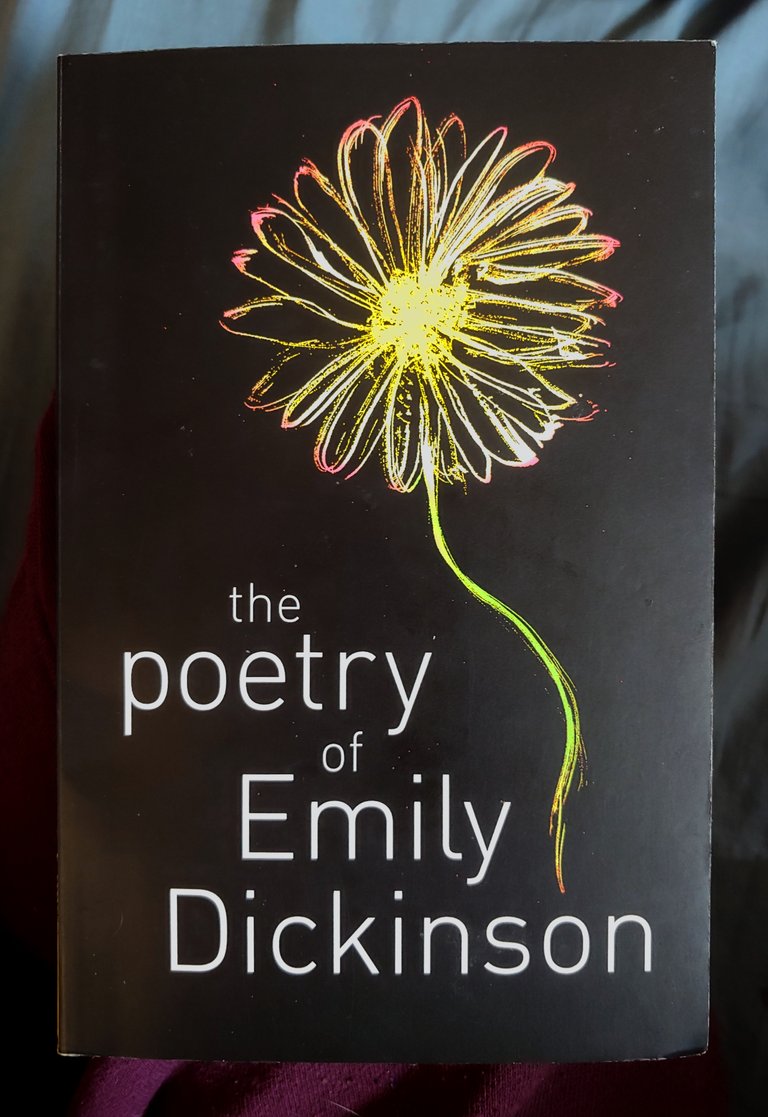
Would you believe that, despite her being one of the most well-known poets in history, and despite receiving a western education, I have never read a single Emily Dickinson poem? 😅 Obviously I've heard of the woman, but it was not until just recently that I acquired a book of her poems and thought, what the heck? 🤷♀️
So I read this book; it is a collection of a few hundreds of Emily's poems, including some of her most famous ones. I will say that I am not a big poetry fan to begin with -- I can appreciate the art, but I really struggle to read through them sometimes 😩 I did find a handful of Emily's works to be very profound and emotional, but I personally could not consider her works to be some of the most infamous in the world. But I suppose it is a good thing to be able to preserve this woman's works. Anyway, without further ado, let's jump into some poems.

In this poem, Dickinson alludes to a Spring bird, in this case a Robin, that sings only for her. If you are unfamiliar with the American Robin, it is a bird that is typically associated with its appearance during Spring. It is one of the earliest species to lay their eggs during the season, and they are also one of the first birds to awaken at dawn, comforting the rest of the world with their chirping tunes. In all honesty they are a beautiful bird, and truly symbolize that Spring has arrived.
 (Image by Hans Toom from Pixabay)
(Image by Hans Toom from Pixabay)
So a Robin arrives during the Spring, and migrates during the Summer. Although Emily is sad at its departure, she does not worry for too long, for the bird will return home with a new melody for her. Each little doubt and fear is removed once she remembers that come next Spring, her Robin will sing for her again.
When I first read this poem, I found it significant simply for the fact I find great meaning in Robins. Again, Robins are one of the first signs that you will see to know that Spring has officially arrived. It is a sign that the cold, brutal Winter weather is finally passing, and soon warm Spring air will be filling our lungs. Their piercing chirps have comforted me during some lonely dusks and dawns. I find this poem beautiful for that reason alone; a reason to be hopeful.
However, when I read professional interpretations of this poem, I came to learn that it is apparently about the love that Emily had for her friendship with a woman named Susan. Susan eventually went on to marry Emily's brother Austin, so the Robin migrating was quite literally Susan and Austin departing for a foreign land. Of course such news would have been a tremendous shock to Emily, but again, she manages to find hope in the fact that Susan will return.
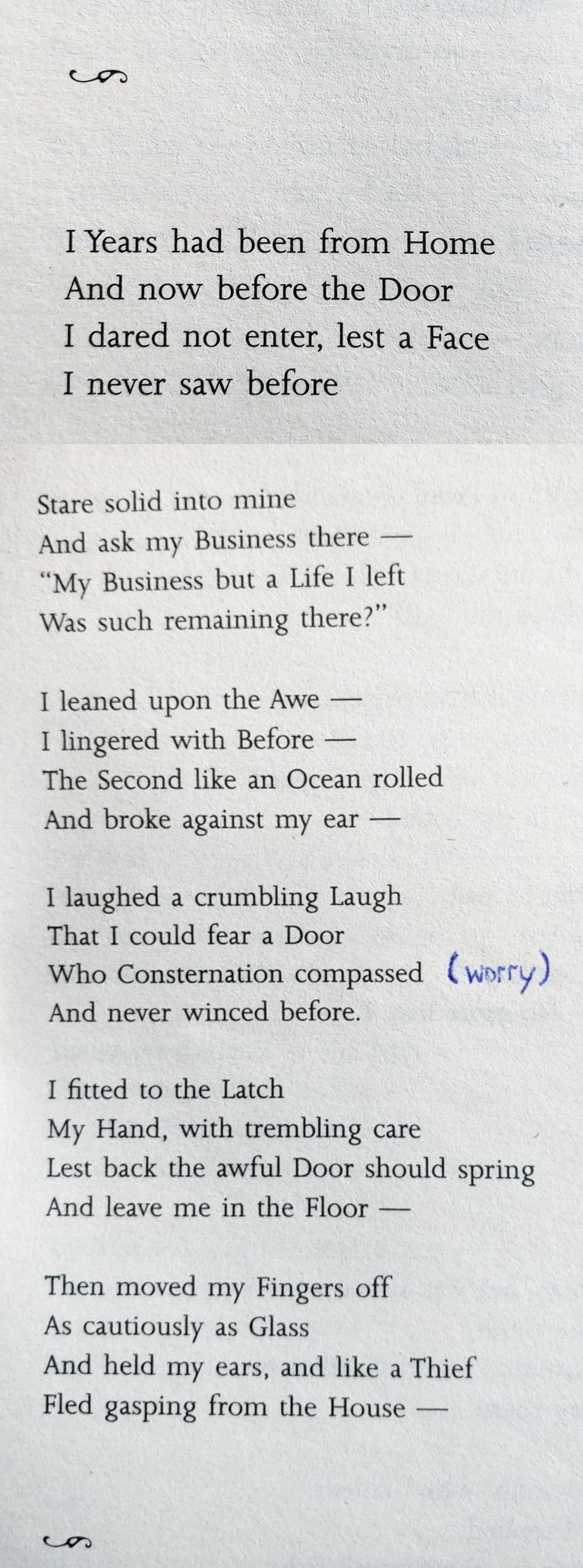
In this poem, Dickinson has arrived home after having been away for many years. It has been so long that she worries that either an unfamiliar face will greet her, or it will be someone who cannot recognize Emily anymore. The idea scares her; that she had once made a life for herself in this house, but it is no longer there due to change. She tries to gather up the courage to knock on the door, but like a thief who cannot gather his nerves before breaking into a house, she runs off...
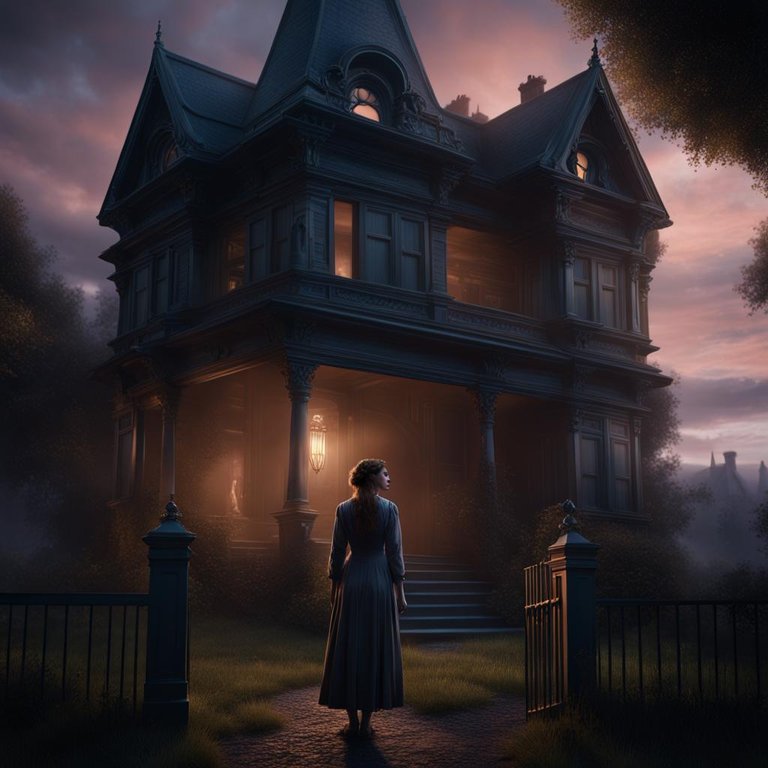 (Image created using an AI art generator on Night Cafe)
(Image created using an AI art generator on Night Cafe)
This poem really spoke to me because I have been in this position several times. The most recent was returning home after having been away for 5 years. It was not a proud moment for me: I had just left a toxic relationship, broken and an addict. Worse still, my father was aware of that truth -- he knew that the money he had been giving me was going towards drugs.
I had quit cold turkey before arriving home. Of course the sight of my home thrilled me, but it also terrified me. The last time I had lived with my father was post-high school graduation; obviously a lot had changed. I felt immense shame facing my father, my home, the way that I was... But unlike Emily, I did not run, and my father accepted me.
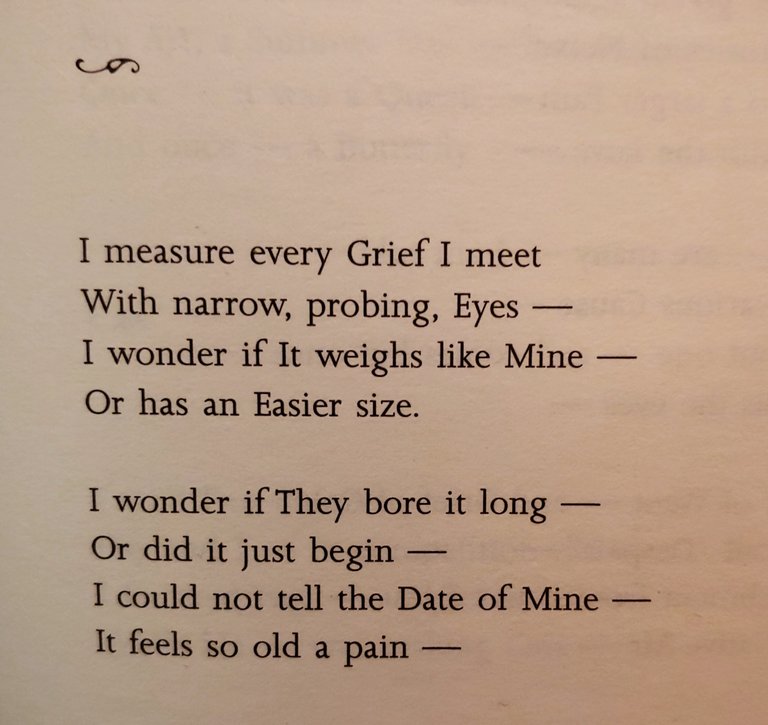
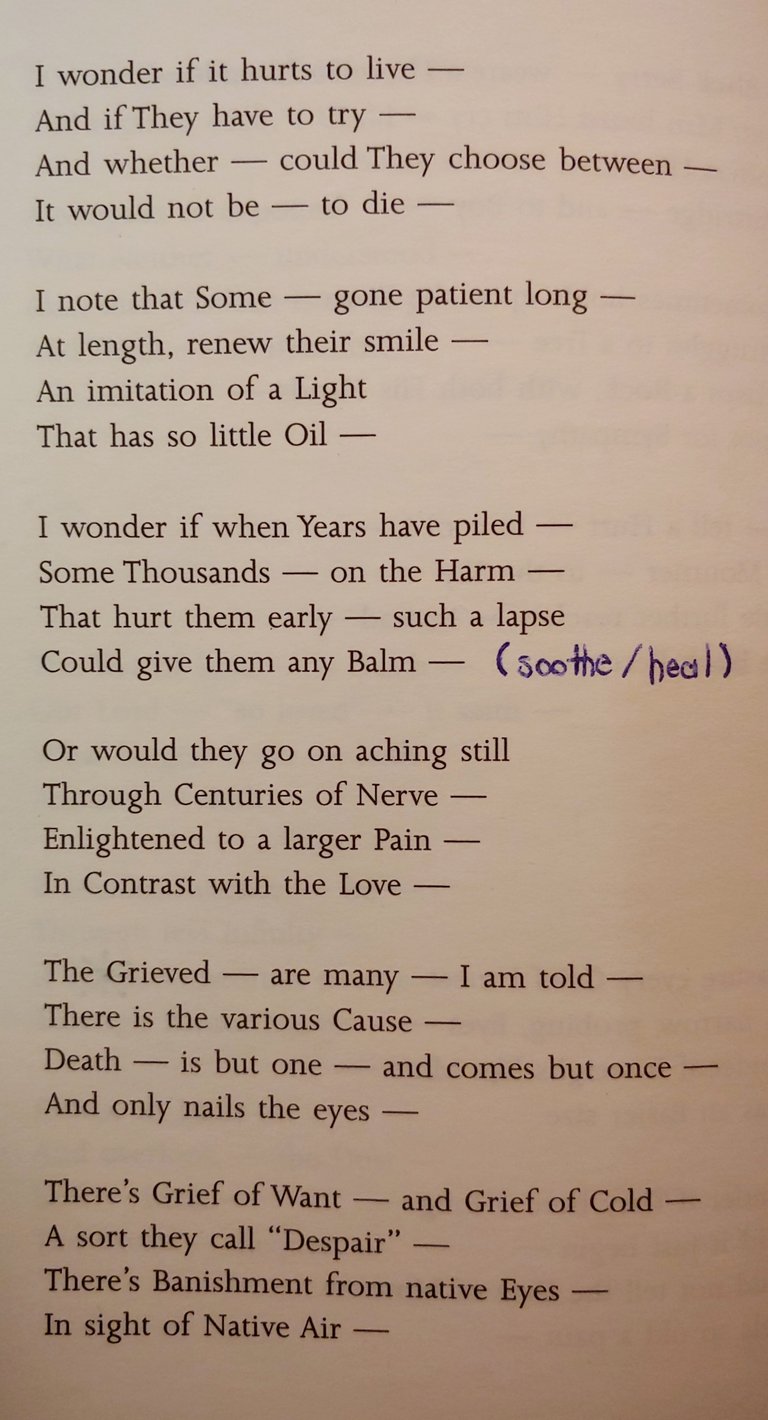
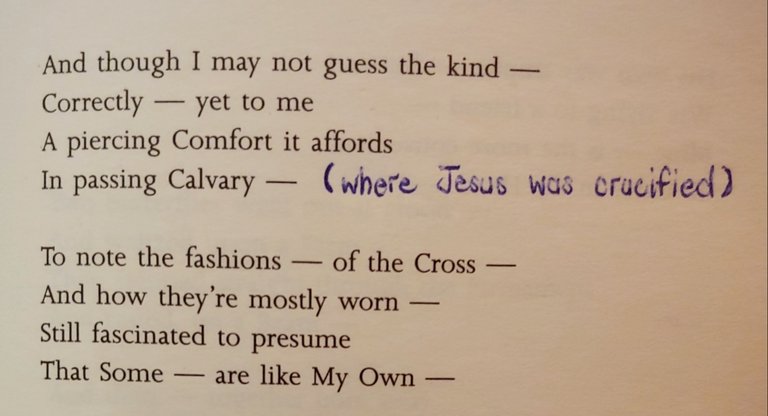
In this poem (one of Emily's longest), she takes the time to reflect on the topic of grief. Right from the beginning Emily identifies her own grief as big and never-ending. She wonders how other people cope with their grief: do they have to "try" to live through it? Can you see the sadness in their smiles? Can anything truly heal from grief after so many years?... Emily notes that grief takes its form in various shapes: some people grieve for the things they do not have, for the things they have lost, for the relationships that they have lost...
However, Emily finds comfort "in passing Calvary," which is the place where Jesus was crucified. This means that despite how dark her grief is, she finds comfort in the fact that others have suffered the same as her -- if not worse! 😅 There is always comfort to be found in knowing that we are not alone.

This poem rings true with me because I myself am someone who has struggled with grief from an early age. Divorced parents, frequent assault at the hands of a family member, ostracized from other family, toxic relationships, betrayal by "friends," addiction...
I can specifically relate to the fifth stanza of the poem. After so many years of having trauma on top of trauma stacked together, it is hard to imagine that I can ever be "healed." I am no longer where I once was, but most days I do have to feign happiness. However, I no longer relate to Emily, in that sense that I no longer find comfort that others are struggling as well. Today, I am rather indifferent towards it...